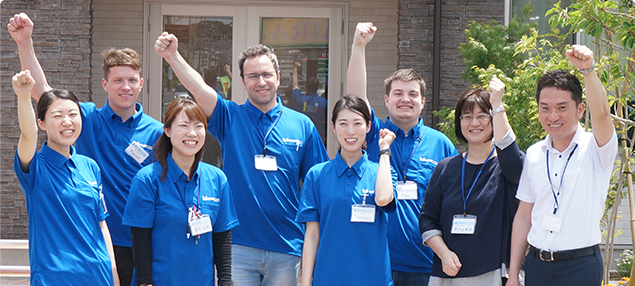
Building Confidence in English Speaking: Practical Exercises for Japanese Learnersインクル英会話浜松市
英語のブログ
インクル英会話のネイティブ先生のブログから英語を勉強しましょう。
In the pursuit of English fluency, one of the most crucial yet challenging aspects for Japanese learners is building confidence in spoken communication. Whether it's for professional advancement, academic pursuits, or personal growth, the ability to articulate thoughts and ideas with confidence can significantly impact one's language journey. In this blog post, we'll explore practical exercises tailored specifically for Japanese learners to enhance their confidence in English speaking.
Understanding the Importance of Speaking Confidence
Confidence in speaking not only facilitates effective communication but also fosters connections and builds rapport with native speakers. For Japanese learners, overcoming cultural and linguistic barriers to express themselves confidently in English is key to unlocking new opportunities and expanding their horizons.
Practical Exercises to Boost Speaking Confidence
- Solo Speaking Practice:
- Mirror Exercises: Stand in front of a mirror and practice speaking aloud, focusing on pronunciation, intonation, and facial expressions.
- Monologue Practice: Choose a topic of interest and deliver a short monologue in English, focusing on fluency and coherence.
- Recording and Self-Evaluation:
- Record Speaking Tasks: Record yourself speaking in English, whether it's reading passages, describing images, or engaging in conversations.
- Self-Evaluation: Listen to the recordings and identify areas for improvement, such as pronunciation, grammar, and fluency.
- Conversation Partnerships:
- Language Exchange: Partner with a native English speaker for language exchange sessions, where you can practice speaking and receive feedback in a supportive environment.
- Peer Practice: Practice speaking with fellow Japanese learners of English, taking turns to engage in conversations and provide constructive feedback to each other.
- Role-Playing Scenarios:
- Real-Life Situations: Role-play common scenarios such as ordering food at a restaurant, making phone calls, or participating in job interviews to simulate real-life communication.
- Variety of Roles: Take on different roles in the scenarios to practice adapting language and tone accordingly.
- Public Speaking Opportunities:
- Group Presentations: Volunteer to give presentations or speeches in English during group meetings or seminars to gain experience speaking in front of an audience.
- Toastmasters Clubs: Join English-speaking Toastmasters clubs or similar organizations that offer public speaking opportunities and constructive feedback.
Cultivating a Positive Mindset
Building confidence in English speaking is as much about mindset as it is about practice. Japanese learners can cultivate a positive mindset by:
- Celebrating Progress: Acknowledge and celebrate small victories and improvements in speaking skills.
- Embracing Mistakes: View mistakes as opportunities for learning and growth rather than failures.
- Setting Realistic Goals: Set achievable goals for speaking practice and track progress over time.
Conclusion:
In conclusion, building confidence in English speaking is a journey that requires dedication, practice, and a positive mindset. By engaging in practical exercises tailored to their needs and embracing opportunities for speaking practice, Japanese learners can overcome self-doubt and hesitation, and become more confident and proficient communicators in English. Remember, confidence grows with practice, so don't be afraid to step out of your comfort zone and let your voice be heard. Happy speaking!
自動翻訳
流暢な英語を追求する上で、日本人学習者にとって最も重要かつ困難な側面の 1 つは、口頭でのコミュニケーションに自信を築くことです。職業上の進歩、学問の追求、個人の成長のいずれであっても、自信を持って考えやアイデアを明確に表現する能力は、言語の旅に大きな影響を与える可能性があります。このブログ投稿では、日本人学習者が英語を話すことへの自信を高めるために特別に調整された実践的な演習を検討します。
自信を持って話すことの重要性を理解する
スピーキングに自信があれば、効果的なコミュニケーションが容易になるだけでなく、ネイティブスピーカーとのつながりが促進され、信頼関係が築かれます。日本人学習者にとって、文化的および言語的障壁を克服して英語で自信を持って表現することは、新たな機会を獲得し、視野を広げる鍵となります。
スピーキングの自信を高めるための実践的な練習
- ソロスピーキングの練習
- 鏡の練習: 鏡の前に立って、発音、イントネーション、顔の表情に焦点を当てて、声を出して話す練習をします。
- モノローグの練習: 興味のあるトピックを選択し、流暢さと一貫性を重視して英語で短いモノローグを発表します。
- 記録と自己評価
- スピーキングタスクを記録する: 文章を読んだり、イメージを説明したり、会話をしたりするなど、英語で話している自分を記録します。
- 自己評価: 録音を聞いて、発音、文法、流暢さなど、改善の余地がある領域を特定します。
- 会話パートナーシップ
- 言語交換: 英語のネイティブ スピーカーと提携して言語交換セッションを行い、サポート的な環境でスピーキングを練習し、フィードバックを受け取ることができます。
- ピアプラクティス: 同じ日本人の英語学習者と話す練習をし、交代で会話に参加し、お互いに建設的なフィードバックを提供します。
- ロールプレイング シナリオ
- 現実の状況: レストランでの食事の注文、電話をかける、就職面接への参加などの一般的なシナリオをロールプレイして、現実のコミュニケーションをシミュレートします。
- さまざまな役割: シナリオ内でさまざまな役割を引き受けて、それに応じて言語と口調を適応させる練習をします。
- 人前で話す機会
- グループプレゼンテーション: グループ会議やセミナーでボランティアとして英語でプレゼンテーションやスピーチを行い、聴衆の前で話す経験を積みます。
- トーストマスターズ クラブ: 人前で話す機会や建設的なフィードバックを提供する、英語を話すトーストマスターズ クラブまたは同様の組織に参加してください。
ポジティブな考え方を育てる
英語を話すことに自信を築くには、練習だけでなく考え方も重要です。日本語学習者は次の方法でポジティブな考え方を養うことができます。
- 進歩を祝う: 小さな勝利やスピーキングスキルの向上を認めて祝います。
- 間違いを受け入れる: 間違いを失敗ではなく学習と成長の機会として捉えます。
- 現実的な目標を設定する: スピーキング練習の達成可能な目標を設定し、長期的に進捗状況を追跡します。
結論:
結論として、英語を話すことに自信を築くには、献身、練習、そして前向きな考え方が必要です。自分のニーズに合わせた実践的な演習に取り組み、スピーキング練習の機会を取り入れることで、日本人学習者は自信喪失やためらいを克服し、より自信を持って英語でのコミュニケーションが上手になることができます。自信は練習とともに成長するので、恐れずに快適ゾーンから出て、自分の声を聞かせてください。楽しく話しましょう!



 テレビCM
テレビCM インクルブログ
インクルブログ カレンダー
カレンダー 英検結果
英検結果


 無料体験・お問合せ
無料体験・お問合せ 053-434-4821
053-434-4821